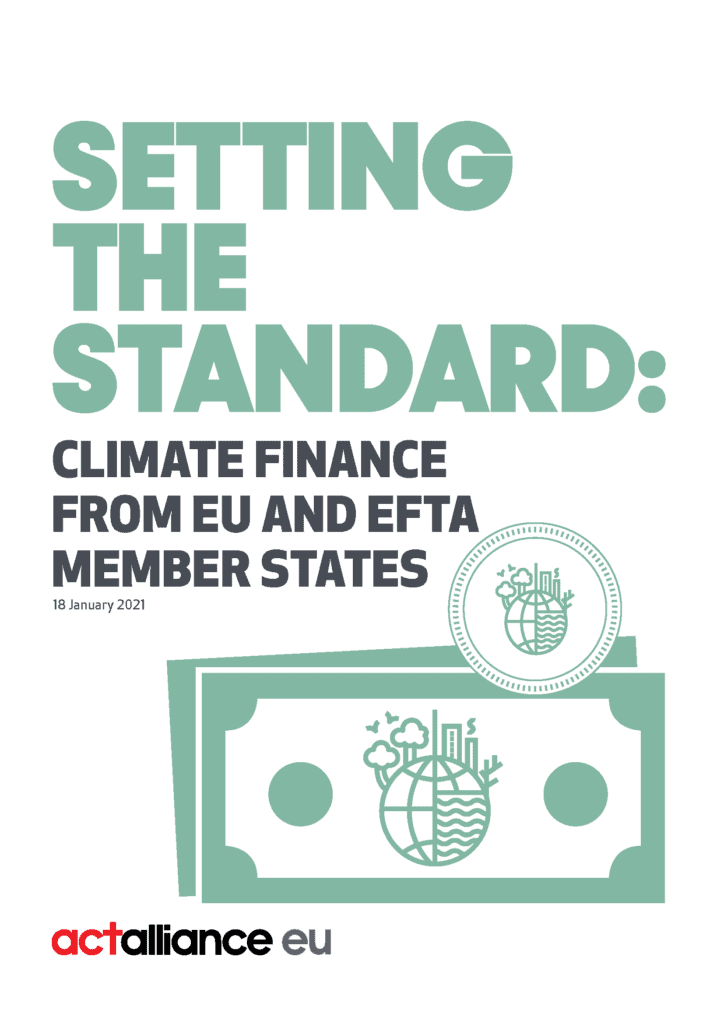Overview
This report commissioned by ACT Alliance EU, and prepared by INKA Consult, analyses the climate finance contributions from the European Union (EU) and European Free Trade Association (EFTA) member states. The study acknowledges the ongoing global climate emergency. It stresses the importance of financial support for effective climate action.
The previous report, “Falling Short,” focused on EU institutions’ commitments to the financing of climate change mitigation and adaptation efforts. In the current report, attention shifts to evaluating the contributions of EU and EFTA member states, who, along with other developed nations, pledged to provide $100 billion annually in climate finance to developing countries by 2020. The analysis is based on the Biennial Reports submitted in 2019, containing data from 2018.
Critical climate finance disparities
The report acknowledges the efforts of EU members in contributing to climate finance. However, it highlights that these efforts fall short of the targeted $100 billion. The authors argue that wealthy nations have a responsibility to support those less responsible but severely impacted. While recognising the EU’s positive steps, the report contends that more substantial contributions are needed.
Key findings include the assertion that the reported European figures are inflated. The current practice of reporting loans as equivalent to grants results in an overestimation of the actual financial support. Adjusting the figures using the OECD methodology reveals that the total EU climate finance in 2018 was €11.6 billion. This is just over half of the reported total.
The report also emphasises the need for a balanced approach between adaptation and mitigation efforts, in line with the Paris Agreement. It argues that the current balance is skewed towards mitigation. Adaptation finance, however, is more critical for developing nations. Additionally, the report highlights the lack of a consensus on the definition of “new and additional” climate finance. This leads to variations in reporting among European states.
Recommendations
To address these issues, the report offers several recommendations. These include redoubling efforts to scale up finance, prioritising grants over loans, aligning contributions with Gross National Income, and collectively ensuring a balanced allocation between adaptation and mitigation. Furthermore, the report calls for a common definition of “new and additional” climate finance to avoid diverting funds from other development needs.
In conclusion, the report urges the EU, its institutions, and member states, as well as EFTA member states, to take significant steps in improving and aligning their climate finance contributions to meet global commitments and set new standards for climate finance worldwide.
